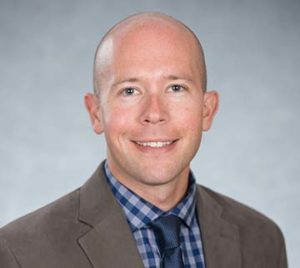Solemnity of the Nativity of Saint John the Baptist
June 24, 2018

Readings:
First Reading: Isaiah 49:1-6
Psalm: 139: 1-3, 13-14, 14-15
Second Reading: Acts of the Apostles 13:22-26
Gospel: Luke 1: 57-66, 80
The birth of a child is an exciting time. Provided the child and parents’ health is good, relatives, friends, and even strangers who gaze upon the newborn do so with wonder and celebration. As an uncle and godfather several times over, I am always amazed to meet my new niece or nephew, struck by the miracle that is this new life and the potential his or her future holds. For this very same and profound reason, the birth of a child can also be a scary time. We just cannot know what is in store for this young one as the years go on and baby becomes infant becomes child becomes teen become grown up.
Today the church celebrates a very exciting birth indeed. As the Gospels tell us, John’s birth was as miraculous as one might imagine given the advanced age of his parents and the conditions of his historical context. And yet, as the angel relayed to Mary in her own experience of learning she too was with child, nothing is impossible for God.
Not only are all things possible when we say yes to God and allow the Spirit to work with and through us, but we come to learn over time what tremendous things God desires for us and what ways God invites us to participate in the announcement and in-breaking of the Kingdom. The First Reading from the Book of Isaiah addresses this point. The prophet reflects on all that has unfolded so far, considering the surprising and powerful ways that God has used him for divine mission. “The Lord called me from birth, from my mother’s womb he gave me my name” we hear proclaimed. This call to be a messenger of peace and justice on God’s behalf did not come late in life, not matter how long it may take for one to recognize it. No, this vocation, this calling to do God’s will starts at birth. As with Isaiah, so also we witness John’s prenatal prophetic calling. Each called from before their births, each invited to show God’s glory, justice, and peace in unique ways and in particular times.
This calling is not reserved for a few special people alone, such as Isaiah or John the Baptist. Instead, as the Second Vatican Council in Lumen Gentium reminds us, we all share a universal call to holiness that is tied to our baptism. As Pope Francis recently put it in his Apostolic Exhortation Gaudete et Exsultate, “We are all called to be holy by living our lives with love and by bearing witness in everything we do, wherever we find ourselves” (14). The question is not if we have been called but rather whether or not we will respond to the call we have already been given.
As we look around our communities, nations, and world, we see the manifold ways that God could use us to announce the good news and to call out injustice in our midst. At times it may appear that our work on behalf of the Kingdom is futile or hopeless. This is something Isaiah acknowledges when he reflects: “Though I thought I had toiled in vain, and for nothing, uselessly, spent my strength, yet my reward is with the Lord, my recompense is with my God.” John, too, might be considered a failure by worldly standards, someone imprisoned by the state and executed out of jealousy and insecurity. Yet, as Jesus Christ has made clear, death does not have the last word for those who sincerely pursue the path of holiness God has placed before all of us. Though the challenges may be great and the struggle for justice real, the “hand of the Lord” is with us as much as it was with John in the desert. In Gaudete et Exsultate Pope Francis encourages us along the way, exhorting us to remember that we do not go it alone. “When you feel the temptation to dwell on your own weakness,” the pope explains, “raise your eyes to Christ and say: ‘Lord, I am a poor sinner, but you can work the miracle of making me a little better” (15). For with God indeed nothing is impossible.
Baptized into the Body of Christ, we are members of a prophetic community called to work for peace and justice, announcing the good news in word and deed. May we reflect on our own lives as did Isaiah, John, and so many others that have gone before us. And may we look at the newborn Christians in our communities of faith and ask the question shared by those inspired by John’s birth: “What, then, will this child be?” And help that child grow into the prophet God intended her or him to be.
Rev. Daniel P. Horan
Assistant Professor of Systematic Theology and Spirituality